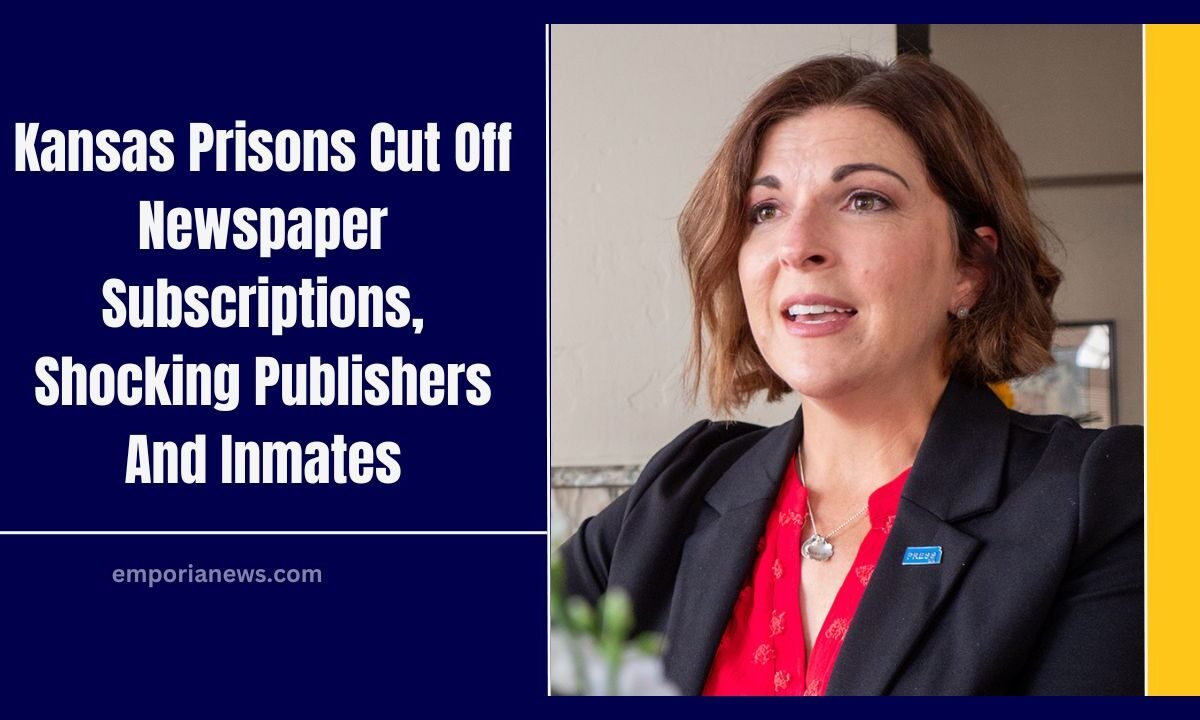In a sudden shift, the Kansas Department of Corrections blocked newspaper subscriptions paid for by anyone other than incarcerated individuals, startling publishers and severing a vital news link for people behind bars.
This policy change—made effective August 27—marks a stark reversal, cutting off inmates’ access to trusted local reporting and igniting backlash from rural newspapers and press advocates.
Policy Change & Initial Impact
- Publisher Rob Morgan of the Neodesha Derrick News first noticed the changes when four subscriptions delivered to correctional facilities were canceled, hitting the community newspaper hard.
- Previously, families could easily send subscriptions to incarcerated loved ones. The new directive prohibits outside-paid newspaper deliveries, cited by the department as a safety measure to avoid contraband.
How Newspapers Were Affected
- The policy blindsided small publications like the Neodesha Derrick News, which serves a tight-knit readership of about 300 print and 150 online subscribers in Wilson County.
- One incarcerated subscriber’s subscription—purchased and paid for by his now-deceased mother through 2027—was abruptly canceled, underscoring the policy’s abrupt and deeply personal consequences.
Why It Matters: Tether to the Outside World
- For many incarcerated individuals, a newspaper subscription represents a critical connection—a way to follow community news, see family milestones, and maintain an identity beyond prison walls.
- The policy forces inmates to request and pay for subscriptions from their commissary accounts, a complex process that may saddle already marginalized individuals with obstacles to information.
Response from the Press & Corrections Department
- Emily Bradbury, executive director of the Kansas Press Association, called the move alarming, stressing that cutting off access to legitimate news undermines rehabilitation and civic reentry.
- Department spokesman David Thompson defended the update as aimed at preventing contraband delivery disruptions, emphasizing that digital access remains unchanged and that some subscriptions have already been approved under the new process.
How Other States Handle Inmate Subscriptions
| State | Policy on Inmate Subscriptions |
|---|---|
| Kansas | Outside-paid subscriptions banned since Aug 27; inmates must request and pay via commissary |
| Nebraska | Allows inmate subscriptions via publisher at any time, with no four-order limit |
| Oklahoma | Prohibits blanket bans on periodicals; each delivered issue must pass security review |
- Neighboring states offer more flexible and less disruptive models; Nebraska allows external subscriptions anytime, while Oklahoma permits them unless the content breaches specified security concerns.
Legal Background & First Amendment Concerns
- Past litigation, including a 2007 ruling, declared Kansas policies that banned gift subscriptions and lacked publisher notification unconstitutional, reinforcing that inmates retain a limited First Amendment right to receive information.
- Critics argue the new policy repeats these restrictions—adding bureaucratic barriers without sound rationale—contradicting established court precedent that protects both inmates and publishers.
What Comes Next?
- The Kansas Press Association is exploring legal and public-response options, aiming to reinstate a content-neutral policy aligned with penological safety rather than courtesy barriers.
- In the meantime, publishers and families remain uncertain whether and how subscriptions can be restored—if at all.
By abruptly barring outside-paid newspaper subscriptions, Kansas prisons have not only surprised publishers but also cut off an important informational lifeline for incarcerated individuals.
While safety is a valid priority, the new policy raises constitutional concerns and raises a broader question: how do we balance institutional security with the right to maintain ties to community and the outside world? As the debate unfolds, Kansas’ newest restrictions stand as a flashpoint in the broader struggle over access, speech, and rehabilitation.


